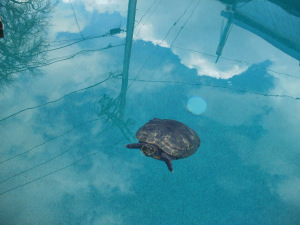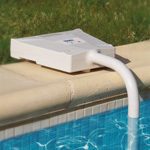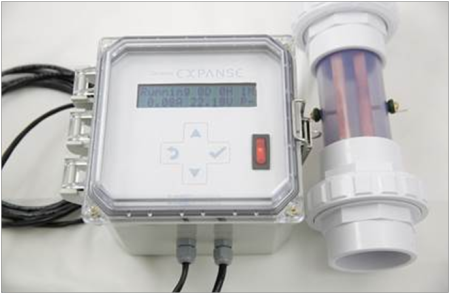May 14, 2019
We have received a lot of questions this week on copper levels. Most of these questions are related to the inability to increase copper levels when opening their pool. Below is a list of common reasons copper levels are not rising: 1. Signs you need to replace copper bars; 1) You are running your ionizer much longer than last year...
Read MoreMay 14, 2019
Most of you are already familiar with the types of chlorine used in swimming pools (calcium hypochlorite, sodium hypochlorite (bleach), lithium hypochlorite, dichlor, and trichlor). The first three are not stabilized. Meaning once exposed to the sunlight, it will quickly precipitate out of the pool. This is why dichlor and trichlor have become so popular since the stabilizer is added...
Read More
May 14, 2019
I had the best conversation yesterday with a fascinating woman. Her story is so unique, I had to share. I am an animal lover like Bonnie and when I was little I did catch a lot of turtles. She is not our client and does not have one of our ionization systems However, I did consult with her on how to best...
Read MoreMay 14, 2019
Phosphate became a household word in the 1970’s when people started to use low-phosphate and phosphate-free laundry detergents. This was to protect lakes, streams, wetlands and other runoff areas from the detrimental effects of excess phosphate. One of these effects is unwanted algae blooms. What’s true for lakes is also true for swimming pools. Phosphates are derived from phosphorous,...
Read MoreMay 14, 2019
The level at which the swimming pool skimmers operate best is between one third and one half the way up the opening of the pool skimmer. If the level is higher, the water moving into the skimmer is going so slow that debris may pass by the opening without being pulled in. If the pool water is so high that...
Read More
May 14, 2019
Chlorine Products Used Today Most of you are already familiar with the types of chlorine used in swimming pools (calcium hypochlorite, sodium hypochlorite (bleach), lithium hypochlorite, dichlor, and trichlor). The first three are not stabilized. Meaning once exposed to the sunlight, it will quickly precipitate out of the pool and/or be converted to chlorides. This is why dichlor and trichlor...
Read More
May 14, 2019
Every day, about ten people die from unintentional drowning. Of these, two are children aged 14 or younger. This article will offer some tips on reducing risks and help keep your family and friends safe How big is the problem? From 2005-2009, there were an average of 3,533 fatal unintentional drownings (non-boating related) annually in the United States — about...
Read More
May 14, 2019
You may be getting ready to swim and enjoy the season at its best. Before opening the pool, you need to address several things related to pool sanitation and safety. Among various things, water bugs in the pool must be addressed immediately before they multiply. Water bugs are insects that usually live in water sources. These insects are often found...
Read More
May 14, 2019
There is a debate going on now if there is such a thing as chlorine allergies (I will leave that up to the medical doctors). However, there is a general consensus that a small percentage of people are actually hypertensive to chlorine. There is also a decent amount of evidence on increased asthma in young athletes which are involved with...
Read More
May 14, 2019
The salt water pool is still a chlorinated pool. When maintained properly, these irritations should not be so severe. A common problem with salt water pools is that owners / operators believe this is a “set it and forget it technology”. The pool water chemistry is evidentially off and the pool is probably not being shocked as it should be....
Read More

